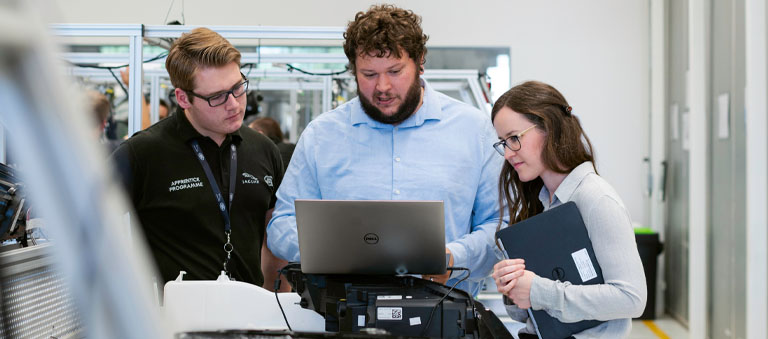ONLINE
Digital Plus Programs (DPP) is the next evolution of online learning from MIT Professional Education. We’ve blended cutting-edge content with the best of online technology and instructional design to enable better learning outcomes while promoting engagement and collaboration.
ONLINE PROFESSIONAL CERTIFICATES
Our Online Professional Certificate Programs provide an in-depth view of the elements that are reshaping our current world, preparing professionals to face the change with the latest knowledge and skills.
FROM 9 TO
13 MONTHS
ONLINE
ONLINE INDIVIDUAL COURSES
Our online individual programs equip professionals with the fundamentals of the latest key drivers of innovation within the business world. Training them to develop the hard and soft skills that are most in demand.
FROM 5 TO
10 WEEKS
ONLINE
ONLINE BLENDED CORPORATE PROGRAMS
We accompany organizations in the continuous training of professionals, demanded by the current context, offering different Online Blended Corporate Programs for today’s companies that seek to lead tomorrow.
ONLINE
CHOOSE YOUR PATH TO SUCCESS—WE PREPARE YOU TO REACH IT
BLENDED PROFESSIONAL CERTIFICATE
ONLINE PROFESSIONAL CERTIFICATE PROGRAMS
Digital Transformation
This Online Professional Certificate in Digital Transformation prepares participants to understand the new digital paradigm of the technological revolution in which we are immersed, as well as the most disruptive technologies of the 4th Industrial Revolution.
Industry 4.0
From leading technologies such as IoT and AI to understanding the fundamentals of smart manufacturing and product platforms, we prepare professionals to tackle these challenges head-on and provide them with the knowledge and tools to succeed in the digital age.
Product Management
Each product and service has its own set of objectives and challenges which require an innovative and customized approach to its product management. Product management can be described as the intersection of business, user experience, and technology.
This program will train you to deal with complexity, implement technologies and platforms, and design unique solutions that will bring beneficial results in every aspect of the business.
Strategic Technology Roadmapping and Innovation
MIT Professional Education’s Online Professional Certificate Program in Strategic Technology Roadmapping and Innovation is designed to equip professionals with the full range of tools, skills, and knowledge needed to successfully lead their organizations through the complexities of technology implementation, always keeping in mind the human factor of team management.
Sustainability
Will you lead the charge forward towards a more optimized and sustainable future? Our Professional Certificate will provide you with the critical foundational education and tools necessary to produce real, lasting changes in the modern world and future for generations to come.
ONLINE
COURSES
Tech Skills
Human Skills
Industrial Skills
LIVE VIRTUAL COURSES / 2 WEEKS
BUNDLE PROGRAMS
At Digital Plus Programs we promote the development of two key languages to understand, master and lead change:
In order to know how to navigate through the rapid advances that are shaping the way the professional world works, and for professionals to acquire the ability to move at the speed of opportunity.
In order not to lose the essence and to promote integrity, diversity, curiosity, imagination, and a strong will to contribute to society: values that can make the improvement of humanity possible.
DIGITAL PLUS PROGRAMS IN NUMBERS
An experience that does not end with us
DIGITAL PLUS PROGRAMS NEWS
CONTACT
DIGITAL PLUS PROGRAMS
+1 61 7982 1343
USA
+34 660 558 464
EUROPE
professionalprograms@mit.edu
MIT Professional Education is collaborating with online education provider Global Alumni to offer a portfolio of online courses. These programs leverage MIT’s leadership in innovation, science, engineering, and technical disciplines developed over years of research, teaching, and practice. Global Alumni collaborates with institutions to manage enrollments (including all payment services and invoicing), technology, and participant support.



































